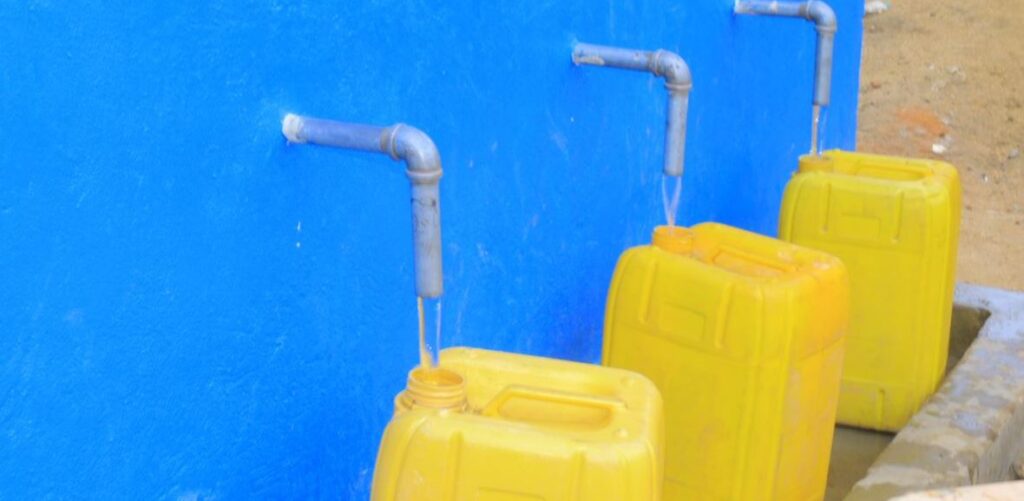DR Congo – In Mahagi, in the northeast, the drinking water system was in dire need of an upgrade. The local population is heavily involved.
Building and managing water systems is a profession in its own right; all the more so in DR Congo. Extremely difficult access to certain areas, the availability of materials and spare parts, the absence of certain technical expertise, etc. present more obstacles. Most aspects, however obvious, often involve custom work and require good background knowledge of the situation. But there is also an undeniable positive aspect to working in these conditions: the local population. Because the local population experiences daily struggle when it comes to obtaining drinking water for the household and is aware of the great risks associated with the use of impure water (in combination with a lousy health care system), they are alert like no other when involved in planning and building water systems. They ask for nothing less than full involvement.
Increasing demand for drinking water
This is also the case in the provincial town of Mahagi, where Join For Water and CIDRI built a water system in the early 1990s, designed for approximately 14,000 people at the time. Since the return of refugees after various wars in the region, along with the construction of a new university and, of course, the availability of a drinking water system, Mahagi has attracted a lot of people, with more than 80,000 people now living in the districts that are supplied with tap water. The amount of water available has therefore been severely insufficient in recent years.
With the (technical) support of Join For Water and MISEREOR, partner CIDRI is currently constructing a second supply line that will bring extra flow to the city and partly remedy the acute shortage of water. The local population plays a central role in this project, in various different ways: they contribute wherever possible. They take care of digging the trenches over a distance of many kilometres (from the wells to the centre), carrying the materials, but also manage to collect cash. Every family that already has water pays a small solidarity contribution and every family that will receive water as a new user also pays a contribution. The plan is to collect almost 10% of the project cost or €40,000 locally. This not only ensures that more can be achieved with the project resources, but above all that the local population appropriates the project and subsequently manages and maintains the system. They are the real owners, just like the old system in Mahagi which, thanks to them, is still fully functional after more than 20 years!

